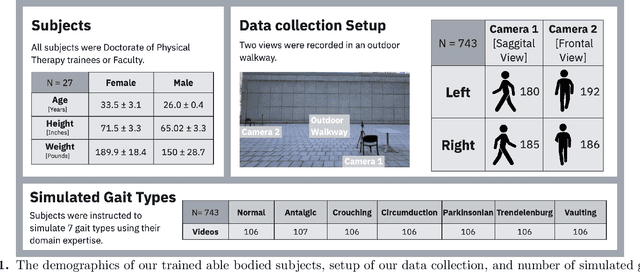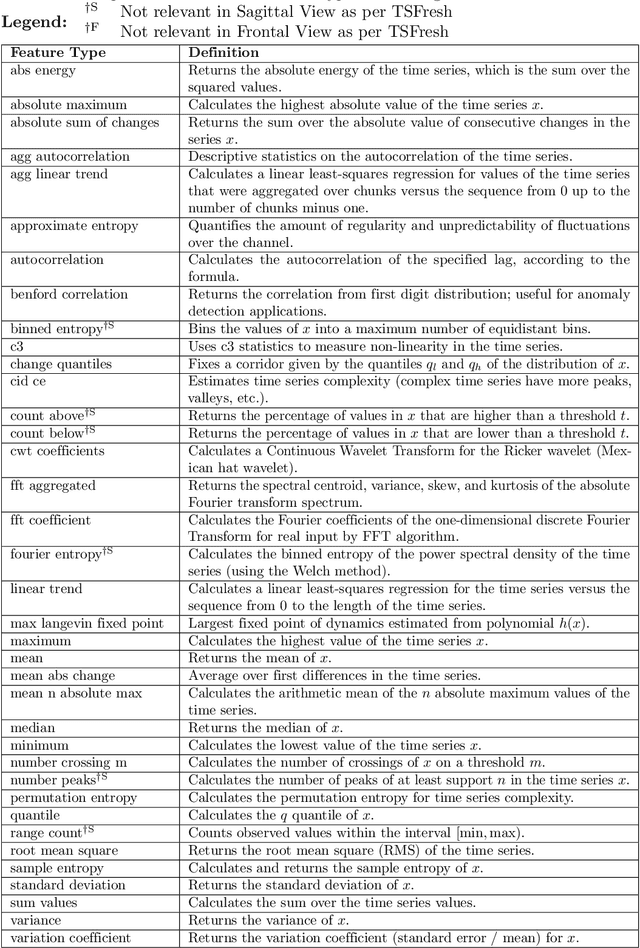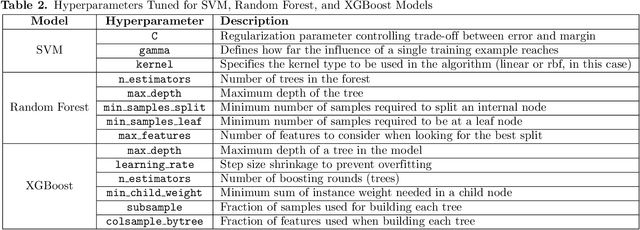Classifying Simulated Gait Impairments using Privacy-preserving Explainable Artificial Intelligence and Mobile Phone Videos
Paper and Code
Dec 02, 2024



Accurate diagnosis of gait impairments is often hindered by subjective or costly assessment methods, with current solutions requiring either expensive multi-camera equipment or relying on subjective clinical observation. There is a critical need for accessible, objective tools that can aid in gait assessment while preserving patient privacy. In this work, we present a mobile phone-based, privacy-preserving artificial intelligence (AI) system for classifying gait impairments and introduce a novel dataset of 743 videos capturing seven distinct gait patterns. The dataset consists of frontal and sagittal views of trained subjects simulating normal gait and six types of pathological gait (circumduction, Trendelenburg, antalgic, crouch, Parkinsonian, and vaulting), recorded using standard mobile phone cameras. Our system achieved 86.5% accuracy using combined frontal and sagittal views, with sagittal views generally outperforming frontal views except for specific gait patterns like Circumduction. Model feature importance analysis revealed that frequency-domain features and entropy measures were critical for classifcation performance, specifically lower limb keypoints proved most important for classification, aligning with clinical understanding of gait assessment. These findings demonstrate that mobile phone-based systems can effectively classify diverse gait patterns while preserving privacy through on-device processing. The high accuracy achieved using simulated gait data suggests their potential for rapid prototyping of gait analysis systems, though clinical validation with patient data remains necessary. This work represents a significant step toward accessible, objective gait assessment tools for clinical, community, and tele-rehabilitation settings
 Add to Chrome
Add to Chrome Add to Firefox
Add to Firefox Add to Edge
Add to Edge